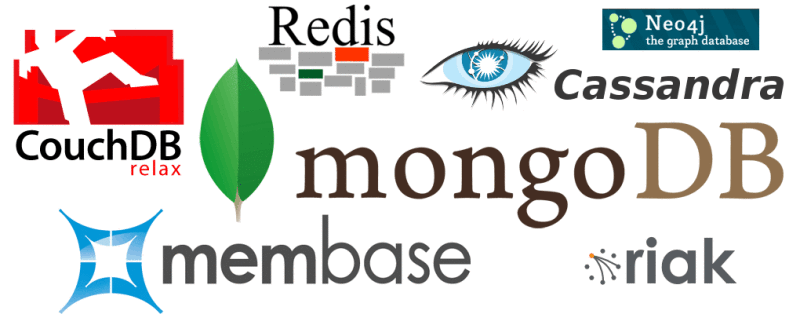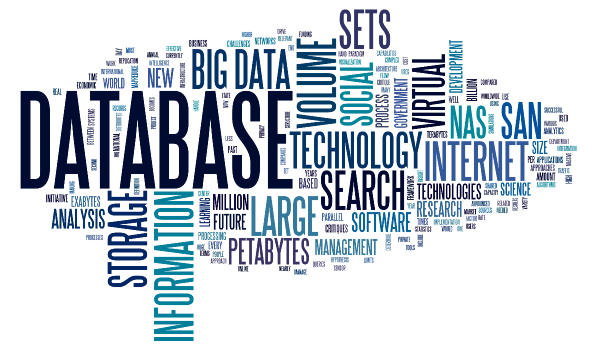

NoSQL (or "Not Only SQL") is a database design platform which, as the name suggests, builds on traditional SQL (Structured Query Language).
Designed to handle large data sets, NoSQL does away with the tables that form the basis of standard SQL databases. Instead, it uses huge data clusters to deal with the kind of data loads associated with web traffic - providing ways to move data around quickly between clusters. Database managers can also scale up NoSQL systems with ease, allowing companies to grow client databases much more efficiently than via traditional standards.
These properties make it the go-to database technology for companies like Facebook, Google, or Microsoft. If Big Data is involved, NoSQL probably is as well. However, the rise of NoSQL has led to new cybersecurity threats associated with the platform's expansion.
The security threats with NoSQL
Importantly, NoSQL was developed to prioritize speed and ease of manipulation, and its creators placed security well down their list of priorities. As Big Data has grown in importance, sucking up all types of personal and anonymized data, this lack of security is coming back to haunt users of NoSQL - potentially with very damaging consequences.
Here are just a few of the most important vulnerabilities associated with NoSQL:
- The NoSQL platform lacks any encryption or authentication procedures, which should govern access to the records contained in private databases
- Password protection systems are very weak, making illicit entry relatively easy
- Third-party encryption tools cannot easily be super-imposed over NoSQL databases
- Servers and clients are connected via the very weak Plain Text standard
Those weaknesses are encoded into the way NoSQL operates, and it's unlikely that new iterations of the database standard will eradicate them. This has led to cyber-attackers mounting an array of attacks against NoSQL-based systems. These could include:
SQL Injection attacks
These attacks can allow malicious actors to take complete control over NoSQL databases that aren't protected by encryption or a VPN. As with standard SQL injection, access can be enabled by the entry of code into user input fields, a risk that is heightened by the weak password and authentication systems employed by NoSQL. If successful, an injection-style attack can allow hackers to change privileges, alter data, steal private records, and destroy databases. It's something that all managers need to avoid.
Denial of Service attacks
In these attacks, hackers use multiple entry requests to jam NoSQL servers and clusters, potentially taking databases offline. They are less precise, and usually less devastating than injection attacks, but when suffered repeatedly can be more than an annoyance. They can have serious financial costs, and render databases inoperable.
What to do to counteract NoSQL threats
Given the importance of NoSQL databases to modern commerce, it's essential to understand how to minimize the risks posed by outside actors. As we've discussed, NoSQL is not inherently secure, so network technicians constantly have to monitor operations to detect threats as soon as they arise.
If companies have the resources, it makes sense to invest in software that can detect NoSQL injection attacks as they take place. This should allow technicians to neutralize attacks and fix vulnerable entry points. The same applies the following attacks. Whether attacks are successful or not, companies that are serious about security use forensic attribution to determine how they were targeted, and where their weaknesses lie.
However, this is a costly security setup for smaller organizations. If you are running a small marketing company or a CRM database for a healthcare company, they may not be available. In that case, alternatives are available.
How a good VPN in a NoSQL Security Essential
Virtual Private Networks have a key role to play in guarding NoSQL databases, and they are relatively accessible and affordable - at least compared to maintaining an elite digital forensics team to guard your data.
Why is this? A good VPN applies 256-bit encryption and uses secure protocols to create tunnels between servers and clients. It plugs many of the gaps left by NoSQL's poor encryption and authentication procedures, rendering data much harder for outsiders to use - even if they can access it via injection attacks.
A VPN can lock down user passwords and other authentication information, closing off one common access route for cyber-attackers. And if a VPN is in place, it generally signals to casual attackers that a NoSQL database is more securely guarded than other potential targets. It's a little like a guard dog for potentially vulnerable database managers.
If you want to impose a VPN above your NoSQL operations, it's best to choose an elite provider like NordVPN or ExpressVPN. The key point is that inferior VPNs won't deliver the security you need, as reliably as you need it. Any outages and weaknesses will provide an "in" for attackers. But providers like NordVPN or ExpressVPN can generally be relied upon.
In a world where database security can stand between companies and financial ruin, adding a VPN makes perfect sense. If you can afford more in-depth security measures, do so by all means. But for most NoSQL users, VPNs represent a compromise that provides the security they need.

Amazon DynamoDB vs MongoDB
In the past few years, we have seen a huge change in trends in the space of databases. A new emerging trend has been the usage of NoSQL ("not only...

SQL vs NoSQL - Finding the Right DBMS for Your Project
When it comes to database technology the two main classifications are - SQL and NoSQL or, relational databases and non-relational databases. They can...



